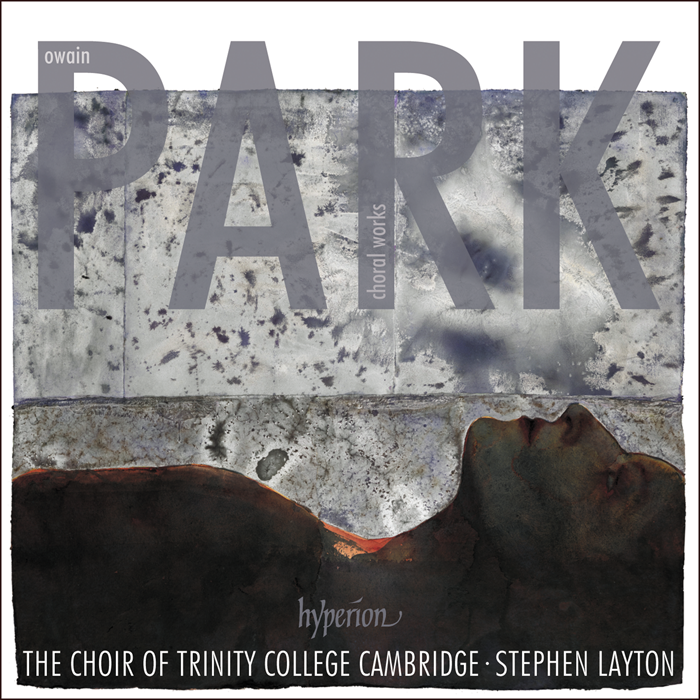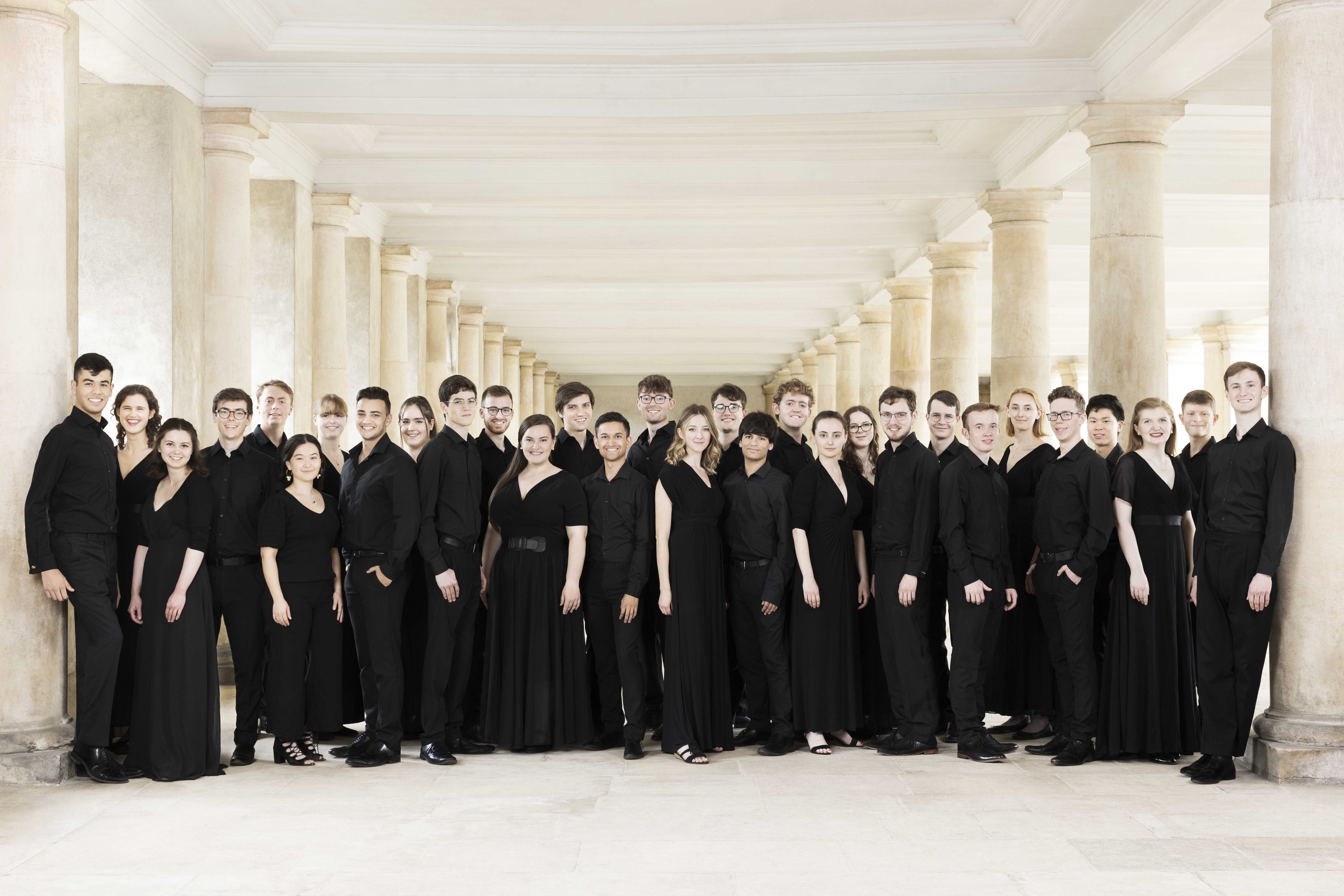Owain Park - Choral Works
> See recording details...Owain Park weaves new with old, glory with grace, and might with mysticism in this terrific collection of choral works
Owain Park may still be only in his mid-twenties, but as a composer, conductor and organist he has already made an impressive mark, in the UK and internationally. His music has been performed by ensembles such as The Tallis Scholars, Tenebrae and the Aurora Orchestra; as a conductor he worked with Cambridge Chorale and the BBC Singers among other groups; and, he was Senior Organ Scholar at Wells Cathedral and Trinity College, Cambridge.
I first encountered Park when the choral ensemble that he founded, The Gesualdo Six, performed at the Temple Winter Festival in December 2017, and a few months later admired his Antiphon for the Angels when it was premiered at Kings Place by violinist Rachel Podger and VOCES8. The ability to find diverse musical images that communicate Park’s vivid and sensitive response to a text with precision and impact, that I remarked on the latter occasion, is greatly in evidence in the works presented on this recording of fifteen of the composer’s choral compositions by the Choir of Trinity College Cambridge under their director, Stephen Layton.
The first of the Psalm verses which form a pictorial, kinetic and emotive sequence in ‘The wings of the wind’ for 8 voices – which was written for Choir’s US tour in 2015 – certainly ‘flies’. The overlapping, staccato pronouncement, “He came flying”, splintering into individual words, the punchy repetitions of which accumulate tremendous energy until the bright sound explodes in a culminating proclamation: “on the wings of the wind”. It’s exhilarating stuff. The “lightning” that the Lord sent forth breaks through the texture in flashes of fire; elsewhere, the low, densely blended voices truly do resonate and roar with an almost apocalyptic darkness: “The Lord also thundered out of heaven” – the blackness of the basses’ image of “coals of fire” is almost tangibly tactile. Rich vocalising and nuanced harmonies conjure a mystical ambience to support soprano Anita Monserrat’s ecstatic solo, “For I will consider thy heavens”. If occasionally the words lose clarity during the full-textured polyphonic episodes then Park knows how to highlight central images, and how to draw the threads together into impactful conclusions. “When one awaketh” shines with an inspiring force, and the homophonic declaration “Truth shall flourish out of the earth and righteousness hath looked down from heaven” is a powerful statement of faith and certainty. It’s an exciting disc-opener and Trinity College Choir launch with tremendous vigour into the invigorating montage.
John Rutter, Park’s former composition tutor and the author of the liner notes, suggests that Park’s music “defies neat classification”. But, while he certainly draws inspiration from eclectic sources and styles, to my ear there is something distinctly ‘English’ about Park’s musical language: one can sense the spirits of Vaughan Williams, Walton, Howells, Arnold, Leighton, Berkeley, and Rutter himself, among others. Though any such echoes are assimilated into a confident and personable compositional voice.
Park looks further back into the past too. ‘Upheld by silence’ (for nine voice-parts) is a response to the Sanctus and Benedictus of William Byrd’s Mass for five voices (one of five such works commissioned in 2014 by Suzi Digby) and here the echoes resonate from a distant but still living historic tradition. After the unaccompanied soprano announces, in a melody both fluid and piquantly nuanced, the first lines of Kathleen Raine’s poem, ‘The World’, surges of choral colour, harmonic expansion and cadential extensions swell and merge with dissonant twists that sound both old and new, and are made to cohere by a continuous humming. The overall effect is visceral and engulfing: the Chapel acoustic plays its part too, and the harmonic breadth and dissonant depth of the full choir’s urgent cry, “The void upholds it./Still it is nothing”, is quite frankly terrifying. The warm concordance of the close offers a little welcome consolation, although the final utterance by the solo soprano injects doubt.
The sombre reflectiveness and slow tempo of ‘Upheld by silence’ are more typical of Park’s idiom, certainly as represented on this disc, excepting the rhythmic playfulness of the outer movements of ‘The wings of the wind’ and the buoyant joy of the rhythmically and temporally mercurial ‘Caelos ascendit hodie’. ‘Trinity Fauxbourdons’, comprising a Magnificat and Nunc dimittis, which set verses from the book of Luke, similarly engages with the past and makes use of the ancient form’s practice of thickening a single melodic line of chant. There is a lovely contrast between the organ-like pedal-hums and chords and the ecstatically aspiring solo soprano in the Magnificat, an effect which is reversed in the ‘Nunc Dimittis’ where Park himself contributes a grave, sensitive bass solo which is countered by sudden, bright exclamations by the higher voices. Likewise, ‘Justorum animae’ (SSATBB), written in 2017 for Trinity College Choir makes new of the old, the imitative counterpoint travelling from strife, through struggle, to serenity, as the souls of the righteous find peace in a closing episode in which the voices cohere in richly layered consonance.
I particularly like ‘Above the stars my Saviour Dwells’ which seems simultaneously restless – in the soaring, questing, exultant soprano line sung by Imogen Russell – and assuring, in the evolving revolutions of the harmonies, which build to a cadence somehow both conclusive and open, and the power of the massed choral sound. The Trinity Choir singers again relish the tonal and sonic richness. ‘Beati quorum via’ (SSATB) is more gentle, airy and free, the melodies often seeming to be extemporal and the whole closing with the sopranos’ and altos’ heavenly gleam.
The longest work on the disc, at nine minutes, is ‘Phos hilaron’, a three-part meditation on evening, the liturgical origins of which lie in the Orthodox Church. Written in 2017 for Trinity College Choir, ‘Phos hilaron’ attests to Park’s innate sense of the textural possibilities of the choral ensemble. There are tinges of Tavener in Part 1, ‘The gathering of the light’, with its low bass drone, and Part 2, ‘The song of the light’, with its consonant harmonies and resonant sonics, above which alto soloist Karolina Csáthy wanders freely, in brief melodic utterances, like an extemporising folk-singer. Part 3, ‘The blessing of the light’, is a gleaming blaze of conviction: “Come, true light. Come, life eternal.” The antiphonal voices divide and sweep through St Symeon’s words with a compelling flow borne of fidelity devotional assurance: the listener can’t but be bound up in and lifted aloft by the shimmering, ascending climaxes.
The liturgical roots of these works are diverse. ‘Judas Mercator pessimus’ (for 8 voices, with SATB semi-chorus), a dramatic setting of the fifth Maundy Thursday Matins Responsory which is part of the Catholic liturgy for Holy Week, issues greater challenges for the listener. Judas’s betrayal, Jesus’s despair and the anger of the populace inflect the music with bitterness, strain and pain as the textures and semitonal dissonances pile up, tottering under torturous weight and tension. The interjections of the semi-chorus offer brief cleansing but little relief; indeed, quasi-riotous running gestures soon begin to tumble threateningly through the full ensemble. A portentous setting of ‘The Lord’s Prayer’ is similarly harmonically restless: a response to John Sheppard’s setting, it incorporates passages from its originator but surrounds them with nerve-twisting bitonal superimpositions.
The last two items are more reassuring though. ‘I wonder as a I wander’ matches Rutter for tunefulness and sincerity, soprano Susannah Hill’s pure first stanza encouraging fervency from the tenors in the second verse as the surrounding voices weave a kaleidoscopic tapestry, before the full soprano section lead us to a comforting close. It’s a real ear-worm. ‘The spirit breathes’, a setting for SATB of Rowan Williams’ poem ‘Loud organs his glory’, is the only item to add organ to the vocal ensemble, and Alexander Hamilton makes a stirring contribution, his introductory invitation to the voices roving down to the rumbling depths and upwards to celestial realms. Hamilton is flamboyant and celebratory, thundering fragments of the hymn ‘O praise ye the Lord’, underpinning and interrupting the choral interjections with sustained, bone-shaking resonance lightened by fanciful flights. This anthem has all of the glory and confidence of the greatest Victorian exponents of the English choral and cathedral tradition, tempered with Park’s own invention, wryness and fancy. It’s terrifically exciting and theatrical.
Claire Seymour

Hyperion Records CDA68191
